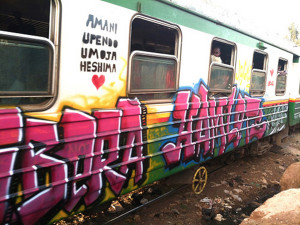Samantha Spooner ~ Hubs Of Innovation, Art And Culture; These Are The Hidden Treasures Of Africa’s Slums
No comments yetAs part of the BBC’s “A Richer World” season, renowned Swedish statistician Hans Rosling recently discussed how West Africa managed to contain the Ebola virus.
It is a fascinating presentation, and part of it illustrates how the trajectory of things tend to change dramatically when they arrive in an African slum.
Sometimes it is for the worse, as in the case of Ebola. Other times, it is for the better, as with culture.
So it is with Semba, the type of infectious music that is always sure to snag the usual body wigglers in the room. Its rhythm combines a delicious mix of lively African beats, smooth samba tones and fast-paced Caribbean Zouk flavour to produce a sound that will keep you hip-locked for hours.
It’s easy to understand how this music got its name; semba comes from the singular Masemba, meaning “a touch of the bellies”, a move that characterises the appropriate semba dance stance.
Semba’s roots
Semba originated from the slums or musseques of Luanda, Angola, in the early 1960s. Urban Angolans began to take advantage of reforms in colonial policy and began to improve their daily lives, which included the creation of new cultural spaces. The production of semba, a local form of urban popular music, was at the forefront of this process.
Today the music is as alive and popular as it ever was, with new artists emerging every year. In fact, any conversation about contemporary Angolan music must always begin with semba. It has also achieved international popularity, particularly in Lusophone countries and across West Africa.
It goes to show, you cannot judge a book by its cover.
Read more:http://m.mgafrica.com/the-hidden-treasures
You May Also Like
Comments
Leave a Reply







